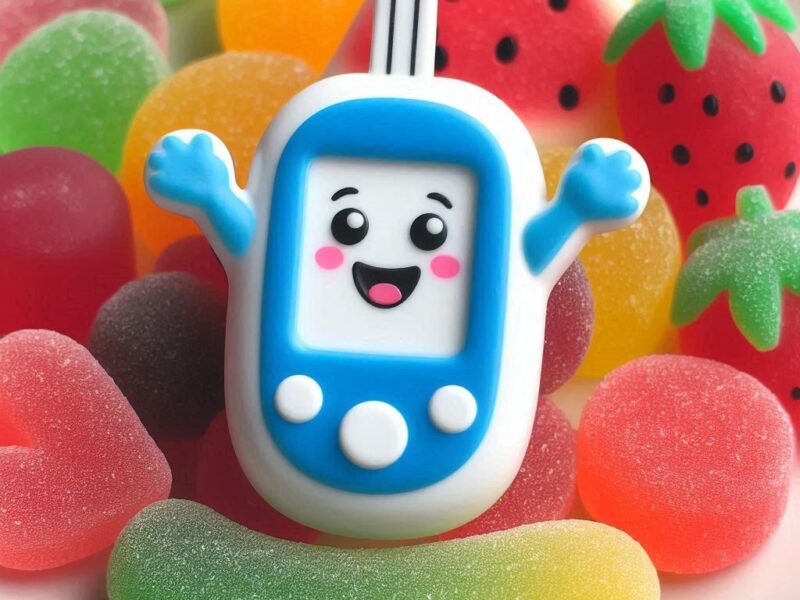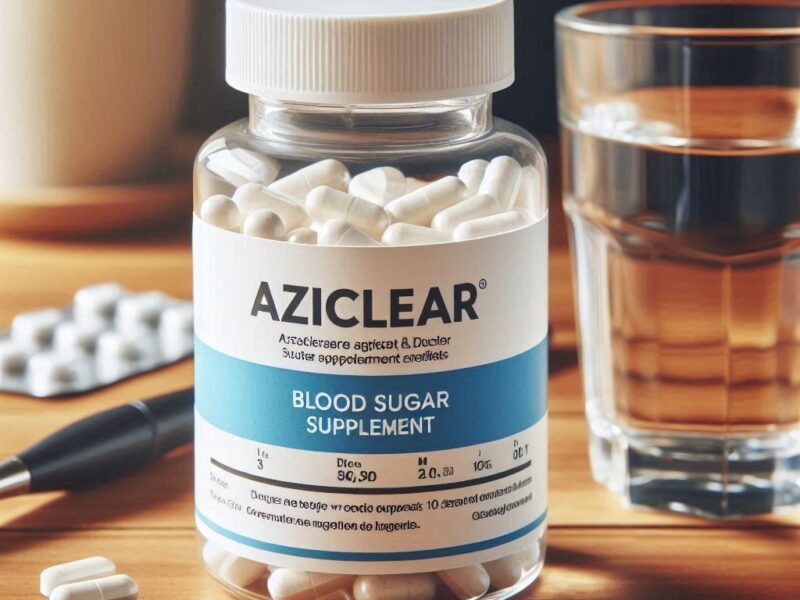- A Strategic Approach
- Understanding Blood Sugar Levels and Why They Are Important
- Traditional Approaches to Controlling Blood Sugar Levels
- Introduction to POGIL (Process Oriented Guided Inquiry Learning)
- How POGIL Can Help Control Blood Sugar Levels
- Case Studies and Success Stories of Using POGIL for Managing Diabetes
- Mastering Blood Sugar: How POGIL Techniques Can Help Control Levels
- The POGIL Method: Effective Strategies for Blood Sugar Level Control
- Optimizing Blood Sugar Levels Using pogil: A Step-by-Step Guide
- Pogil and Blood Sugar Control: Innovative Methods for Better Health
- How pogil Can Revolutionize Your Approach to Controlling Blood Sugar
- Enhancing Blood Sugar Control with Pogil: Insights and Practical Tips
- Pogil Approach to Managing Blood Sugar Levels: What You Need to Know
- POGIL Techniques for Effective Blood Sugar Level Management
- Achieve Better Blood Sugar Control: Exploring the POGIL Method
- Step-by-Step Guide to Implementing POGIL for Blood Sugar Control
- Conclusion: Embracing a Strategic Approach to Managing Diabetes
A Strategic Approach
Managing blood sugar levels can often feel like a daunting task. With the rise of diabetes and other metabolic disorders, finding effective strategies is essential for maintaining health and wellbeing. Many people rely on traditional methods, such as medication and diet plans, but there’s an innovative approach that’s gaining traction: Control blood sugar levels Pogil.
POGIL stands for Process Oriented Guided Inquiry Learning. It’s a teaching method originally designed for educational settings but has proven to be powerful in real-life applications too. By embracing this strategic approach, individuals can take charge of their health in ways they may not have thought possible.
Imagine having control over your blood sugar levels while learning more about your body’s unique responses. The POGIL framework encourages active participation and critical thinking—skills that are invaluable when navigating dietary choices or exercise regimens.
Curious about how it all works? Let’s dive deeper into understanding why controlling blood sugar levels is so important and explore how POGIL could transform your journey toward better health management.
Understanding Blood Sugar Levels and Why They Are Important
Blood sugar levels refer to the amount of glucose in your bloodstream. This vital energy source fuels every cell in your body, playing a crucial role in overall health.
Maintaining balanced blood sugar is essential for numerous reasons. High levels can lead to serious complications, such as diabetes or cardiovascular issues. Conversely, low levels might result in fatigue, weakness, and even confusion.
The body regulates blood sugar through hormones like insulin and glucagon. When this system falters, it can disrupt metabolic functions and impact daily life significantly.
Understanding how various factors—diet, exercise, stress—affect these levels empowers individuals to make informed choices that safeguard their health. An awareness of one’s blood sugar dynamics fosters proactive management strategies that are key to preventing long-term ailments and enhancing vitality.
Traditional Approaches to Controlling Blood Sugar Levels
Traditional methods for controlling blood sugar levels often rely on dietary restrictions and medication. Many individuals are advised to follow a strict diet, focusing on low carbohydrates and high fiber intake. This approach can help stabilize glucose but might feel restrictive.
Medications also play a crucial role in managing diabetes. Insulin therapy is common for many who struggle with fluctuating sugar levels. While effective, it requires careful monitoring and adjustment based on daily activities and meals.
Regular exercise is another cornerstone of traditional management strategies. Physical activity helps increase insulin sensitivity and lowers blood sugar naturally.
However, these approaches may not address the underlying behavior patterns that lead to poor glycemic control over time. Without addressing mindset or habits related to eating, stress, or lifestyle choices, achieving sustainable results can become challenging for many people managing their diabetes.
Introduction to POGIL (Process Oriented Guided Inquiry Learning)
Process Oriented Guided Inquiry Learning, or POGIL, is a teaching strategy that prioritizes active learning. Rather than passively receiving information, students engage in guided inquiry to explore concepts deeply.
This method encourages collaboration among learners. By working in teams, they tackle real-world problems together. This interaction fosters critical thinking and enhances understanding of complex subjects.
POGIL also emphasizes the development of process skills alongside content knowledge. Skills like communication, problem-solving, and teamwork become essential parts of the learning experience.
Through structured activities and reflective discussions, participants gain insights into their own learning processes. This self-awareness can lead to more effective study habits and strategies over time.
Incorporating POGIL into educational frameworks offers a refreshing approach for managing various topics—health management included! Students are empowered to take control of their learning journey while developing practical skills for life beyond the classroom.
How POGIL Can Help Control Blood Sugar Levels
POGIL, or Process Oriented Guided Inquiry Learning, transforms the way we approach managing blood sugar levels. This method encourages active participation and critical thinking. Instead of just following a routine, individuals engage in hands-on learning.
Using POGIL techniques fosters deeper understanding. By analyzing data and discussing results with peers, people can uncover patterns that affect their glucose levels. This collaborative approach enhances accountability and motivation.
Moreover, POGIL promotes self-exploration of dietary choices and exercise routines. Participants learn to make informed decisions based on real-time feedback from their bodies rather than relying solely on external instructions.
Incorporating this method into daily life creates a supportive community atmosphere. Sharing successes and challenges helps maintain focus on goals while improving overall health literacy related to diabetes management.
Case Studies and Success Stories of Using POGIL for Managing Diabetes
Numerous individuals have successfully managed diabetes using the POGIL approach. One notable case involved a group of high school students who implemented POGIL techniques in their health education course. They collaborated to create interactive modules that focused on dietary changes and glucose monitoring.
In another example, a community healthcare program adopted POGIL strategies for training caregivers of diabetic patients. This initiative enhanced understanding and application of self-management practices among participants.
A middle-aged woman reported significant improvements after engaging in a local workshop that utilized POGIL methods. She learned how to analyze her eating habits with peers, which led to better meal planning and consistent blood sugar control.
These stories highlight the adaptability of POGIL across various learning environments, showing its potential for empowering individuals in managing their diabetes effectively. The real-world applications continue to inspire others seeking similar results.
Mastering Blood Sugar: How POGIL Techniques Can Help Control Levels
Mastering blood sugar control requires a fresh perspective. POGIL techniques offer just that, shifting the focus from rote memorization to active learning and inquiry.
By engaging with groups, individuals can explore how various factors influence blood sugar levels. This collaborative approach fosters critical thinking about dietary choices and physical activity. Participants learn not just what affects their health but why it matters.
Incorporating real-life scenarios makes the experience relatable. For instance, examining different meal options encourages discussions on glycemic index and its effect on insulin response.
POGIL empowers users to take charge of their health through structured guidance while promoting self-discovery. When people understand the science behind their body’s responses, they are more likely to make informed decisions.
This method creates an interactive environment where knowledge is shared freely, leading to better retention of strategies for managing glucose levels effectively.
The POGIL Method: Effective Strategies for Blood Sugar Level Control
The POGIL method focuses on active learning and collaboration. It transforms traditional education into an engaging experience, particularly in managing health issues like blood sugar control.
Participants engage with real-life scenarios that encourage critical thinking. This hands-on approach allows individuals to explore the relationship between their choices and blood sugar levels actively.
By understanding concepts through guided inquiry, users learn how different foods impact glucose levels. They discover strategies for meal planning that promote stability rather than spikes.
POGIL also fosters teamwork. Individuals can share experiences and insights, cultivating a supportive community focused on health management.
Through this collaborative framework, participants gain confidence in making informed decisions about their diet and lifestyle. Such empowerment is essential when it comes to controlling blood sugar effectively over time.
Optimizing Blood Sugar Levels Using pogil: A Step-by-Step Guide
To optimize blood sugar levels using POGIL, start with an assessment of your current understanding. Identify what you know about diabetes management and where gaps exist. This sets the stage for a focused learning experience.
Next, engage in collaborative discussions with peers or healthcare providers. Sharing insights enhances comprehension and encourages diverse perspectives on blood sugar control.
Implement hands-on activities that simulate real-life scenarios involving diet, exercise, and medication adherence. These practical exercises reinforce theoretical knowledge while allowing you to practice decision-making skills.
Regularly evaluate your progress by tracking glucose levels and noting changes in your routine. Use this data to adapt strategies as necessary, ensuring ongoing improvement.
Incorporating feedback loops is crucial; reflect on both successes and setbacks to refine your approach continuously. By following these steps within the POGIL framework, managing blood sugar can become more effective and insightful over time.
Pogil and Blood Sugar Control: Innovative Methods for Better Health
POGIL, or Process Oriented Guided Inquiry Learning, offers an innovative approach to managing blood sugar levels. This method emphasizes active learning and collaboration among participants. By engaging in inquiry-based activities, individuals can better understand their own health challenges.
Through POGIL techniques, patients learn how specific foods affect their blood sugar responses. They explore concepts like carbohydrate counting and glycemic index without feeling overwhelmed by traditional lectures.
The interactive nature of POGIL fosters a supportive environment. Participants share experiences and strategies that resonate with personal situations. This peer interaction often leads to deeper insights into dietary choices and lifestyle modifications.
Moreover, POGIL encourages critical thinking skills essential for long-term management of diabetes. As individuals become more informed about their bodies’ reactions, they gain confidence in making healthier decisions daily.
How pogil Can Revolutionize Your Approach to Controlling Blood Sugar
POGIL, or Process Oriented Guided Inquiry Learning, offers a fresh perspective on managing blood sugar levels. By focusing on active engagement and collaborative learning, it empowers individuals to understand their own health better.
This method encourages critical thinking about dietary choices and lifestyle habits. Participants work together to solve real-life problems related to diabetes management. This approach can create a supportive community that fosters accountability.
Instead of traditional rote memorization of facts about diabetes, control blood sugar levels pogil promotes exploration and discovery. Individuals learn the underlying processes affecting their blood sugar levels. They become more informed decision-makers regarding food intake and exercise routines.
The hands-on nature of POGIL makes the journey more interactive. It shifts the focus from mere compliance with guidelines to genuine understanding and personal empowerment in controlling one’s health outcomes effectively.
Enhancing Blood Sugar Control with Pogil: Insights and Practical Tips
Enhancing blood sugar control through POGIL involves engaging with the process rather than just following steps. This method advocates for active participation and inquiry, making it a unique approach to managing diabetes.
Start by setting clear goals. Understanding your current blood sugar levels can help identify areas that need improvement. Use data from daily monitoring to guide your learning journey.
Collaboration plays a vital role in POGIL. Join groups or communities where individuals share their experiences and strategies for controlling blood sugar levels. Learning from others fosters motivation and innovation.
Incorporate practical activities into your routine, such as meal planning sessions based on carbohydrate counting or glycemic index awareness. These hands-on approaches make understanding food choices more interactive.
Remain flexible in adjusting strategies as you gather insights about what works best for you. Embrace experimentation; it’s key to finding personalized solutions that enhance control over your blood sugar levels using the POGIL framework.
Pogil Approach to Managing Blood Sugar Levels: What You Need to Know
The POGIL approach offers a fresh perspective on managing blood sugar levels. It emphasizes active engagement and collaborative learning, transforming the way individuals understand their health.
At its core, POGIL encourages participants to explore concepts through structured activities. This method fosters critical thinking and allows for real-time problem-solving regarding dietary choices and lifestyle adjustments.
By utilizing group dynamics, individuals gain insights from peers while sharing personal experiences. This exchange can demystify complex topics like insulin resistance or carbohydrate counting.
Moreover, the hands-on nature of POGIL helps translate theoretical knowledge into practical strategies. Participants learn to apply what they’ve discovered directly to their daily routines.
Incorporating this methodology creates an environment where participants feel empowered. They not only control their blood sugar but also become advocates for their own health journeys.
POGIL Techniques for Effective Blood Sugar Level Management
Control blood sugar levels pogil techniques offer a fresh perspective on blood sugar management. By emphasizing collaboration and inquiry, participants engage deeply with their choices.
In a POGIL framework, individuals can analyze the factors affecting their glucose levels. This active learning approach encourages questions about diet, exercise, and medication.
Group discussions create an atmosphere of support. Sharing experiences fosters motivation and accountability among peers navigating similar challenges.
Using guided discovery, individuals learn to identify patterns in their blood sugar fluctuations. They become adept at recognizing triggers that lead to spikes or drops.
This method not only builds knowledge but also cultivates confidence in self-management strategies. When armed with insights from POGIL sessions, users are better equipped to make informed decisions daily.
Integrating these techniques into diabetes care can transform perspectives toward achieving stable blood sugar levels. Embracing this collaborative learning style makes managing diabetes more approachable and effective.
Achieve Better Blood Sugar Control: Exploring the POGIL Method
The POGIL method offers a fresh perspective on blood sugar management. By emphasizing active learning, it encourages individuals to engage with the material deeply. This engagement fosters better understanding and retention of information.
Through collaborative activities, participants explore their own experiences with diabetes management. They can discuss dietary choices and exercise routines in real-time. These discussions lead to actionable insights tailored to individual needs.
POGIL promotes critical thinking and problem-solving skills. With its structured approach, users analyze various factors affecting blood sugar levels, from stress to sleep quality.
Hands-on learning allows for practical application of strategies learned in sessions. Participants leave equipped not only with knowledge but also a sense of empowerment in managing their health more effectively.
Exploring the POGIL method transforms traditional approaches into an interactive journey towards achieving stable blood sugar control.
Step-by-Step Guide to Implementing POGIL for Blood Sugar Control
Implementing POGIL for blood sugar control starts with education. Gather resources that explain the principles of Process Oriented Guided Inquiry Learning. Understanding these basics is crucial.
Next, form a small group or community. Collaboration enhances learning and motivation. Share experiences and strategies related to managing diabetes.
Create inquiry-based activities focused on your goals. For example, chart your daily food intake alongside blood sugar levels. This data helps identify patterns and triggers.
Incorporate reflection sessions regularly. Discuss what works, what doesn’t, and adapt accordingly. Flexibility is key to mastering this approach.
Utilize visual aids like graphs or diagrams to track progress over time. This makes the information more digestible and insightful.
Celebrate milestones together as a group! Acknowledging achievements fosters positivity in your journey toward better health management through POGIL techniques.
Conclusion: Embracing a Strategic Approach to Managing Diabetes
Managing diabetes requires a multifaceted approach, especially when it comes to controlling blood sugar levels. The control blood sugar levels pogil offers innovative techniques that empower individuals to take charge of their health. By understanding the dynamics of blood sugar and applying strategic learning practices, many have seen remarkable improvements.
Implementing POGIL can transform your daily routine into an engaging experience with tangible benefits. It equips you with tools to analyze dietary choices, exercise patterns, and medication management in a collaborative way—creating a deeper understanding of how these factors interplay.
As more people embrace this structured framework for inquiry and reflection, they find themselves not just managing but mastering their conditions. This journey encourages continuous learning and adaptation, fostering resilience against fluctuations in blood sugar levels.
The path toward better health is paved with knowledge and support. With POGIL as part of your strategy, you’re not alone; you become part of a community dedicated to achieving optimal well-being through informed decision-making.
Adopting this strategic approach opens doors to new possibilities in diabetes management, leading you closer to living life on your terms while effectively controlling blood sugar levels.


